We provide high quality work, with the guarantee of confidentiality and reliability of the texts translated and individualized service, respecting the needs and deadlines of each customer and company.
Through this website, you will be able to learn a little about the services we offer and the customers we serve.
Contact us. We are available to visit you and answer your questions.


Our activities started in 1979, with Cléstenes dos Reis, until then the only sworn translator for the English language in the greater ABC region.
MREIS TRADUÇÕES is led by MARIANA CONRADO DOS REIS, certified translator for the English language and owner of M.REIS Traduções.




A certified translation, or sworn translation, is a translation that has public faith throughout the national territory. In other words, it is accepted by authorities as if it were the original document and can only be done by a Certified Translator appointed by the Board of Trade.
The work of a Certified Translator can only be performed by a professional duly approved in a specific public exam and registered with the Board of Trade of each State. Approved translators must faithfully follow all deliberations and obligations concerning the sworn translation and practice the values pre-established in the official tables.
Pursuant to Article 18: No book, document or paper of any nature drawn up in a foreign language will be valid in any Federal, State and Municipal department, in any court or jurisdiction maintained, supervised or guided by the public authorities, without the respective translation made in accordance with this regulation.
Thus, for a document to have public faith in Brazil, it must be translated by a sworn translator.
Sworn translation is recommended in the following cases:
Common texts: Passports, civil registration certificates, identity cards, driver’s licenses, professional and similar documents, including personal letters that do not involve legal, technical or scientific texts.
Special texts: Legal, technical, scientific, commercial, including banking and accounting texts; school certificates and diplomas.
A free translation involves the same work as a sworn translation, but it is not subject to the formality of authorities or the Board of Trade, giving more freedom to the translator.
During simultaneous interpreting, the interpreter translates the speech into the target language while the speaker talks in the source language, with special audio equipment. Recommended in formal situations, conferences, seminars, congresses or interviews.
In consecutive interpreting, the interpreter translates after the speaker has finished speaking in the source language. The speech is translated in excerpts. It is recommended for more informal situations such as business meetings, visits or commissions.
Translations in Brazil are charged by the “LAUDA”. Each “lauda” has 1,000 characters without spaces from the text already translated, or approximately 180 words.
Sworn translations follow the table defined by the Board of Trade of each state. To check the values in force, visit the JUCESP website, Table “Fees for Sworn Translators and Commercial Interpreters”.
Simple or technical translations do not follow the same table. The values will depend on the length and complexity of the text and the deadline. Reference values can be found on the SINTRA website.










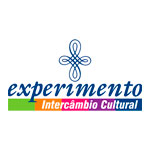

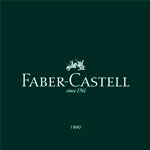





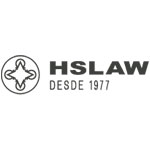







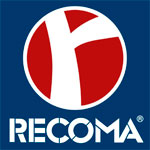

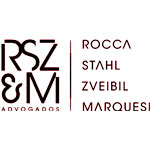









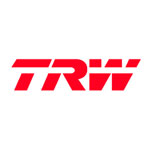





Translation means taking a written text from the source language and transferring it to the target language – without distorting the original meaning.
When translating a document into another language, the translation must have its authenticity verified. In other words, it is necessary to guarantee that everything that is written in the document and that has been translated from one language to another is in fact true and that there has been no change whatsoever. To attest to this loyalty there is the official translator, also known as Certified Translator and Commercial Interpreter. This professional is hired and duly registered with the State Board of Trade. This qualifies the sworn translator to translate documents and other items that require absolute fidelity and reliability of information.
Yes, the sworn translation gives public faith to a document originally written in a foreign language. It is used to carry out international legal procedures in which you must present a document originally issued in another country to public institutions or offices supervised by the federal, state or municipal government.
Yes, the translations of Brazilian documents presented abroad are valid, observing some rules of consular legalization or apostille. Examples of situations in which the sworn translation may be required are the processes of dual citizenship, exchange programs, courses taken abroad, work opportunities and issuance of visas and other documents.
As of August 14, 2016, the “Convention on the Abolishment of the Requirement for Legalization of Foreign Public Documents” came into force in Brazil, popularly known as the “Apostille Convention”. This agreement defines the rules for the certification of documents issued by public authorities so that they have value in other signatory countries of the agreement. In other words, the apostille is nothing more than a certificate that authenticates the origin of the document.
Through this treaty, the process of legalizing documents was simplified among the 112 signatory countries of the agreement, as it allows the recognition of Brazilian documents abroad and foreign documents in Brazil. Consequently, in these cases, documents will no longer have to be legalized by the Consulate General, as the legalization is replaced by the apostille.
It should be noted that the Apostille Convention does not eliminate the need for a sworn translation, as these are complementary procedures in the process of validating documents between countries.
The document that will be presented in another country must be translated by a sworn translator and then the apostille must be included, both of the original document and the translation.
Free translation covers all types of text, which makes it very popular in cases where unofficial texts are needed, such as websites, books, articles, résumés, etc. It is not signed by the translator as in sworn translations. Nonetheless, it is done with the same dedication and whimsy.
No, the sworn translation must necessarily follow the table determined by the Board of Trade of each state, while the simple translation can be negotiated with the customer considering the deadline, degree of difficulty, etc.
In translations in Brazil, a “lauda” is equivalent to 1000 characters without spaces.
If in doubt, we can instruct you. It all depends on the intended use of the translation. But generally speaking, if it’s a document, it will likely need a sworn translation.
To become a sworn translator, it is necessary to take a public exam held by the Board of Trade of each state. In the state of São Paulo, the last one was held in 1999.
Sworn translations always had to be printed and signed by the sworn translator. As of December 19, 2019, the issuance of sworn translations with a digital signature began to be accepted.
Normative Instruction No. 72, on December 19, 2019
National Department of Business Registration and Integration (DREI) of the Digital Government Department.
The instruction states in its article 24 that:
Public translations may be carried out electronically using a digital certificate or other means that allow the unequivocal identification of authorship and the integrity of documents electronically.
With a digitally signed translation, it is possible to send the document quickly and securely, in addition to reducing postal, carrier and notary costs. The digital signature replaces the translator’s notarization as it is legally recognized as a valid certification.